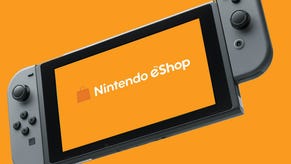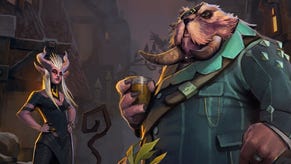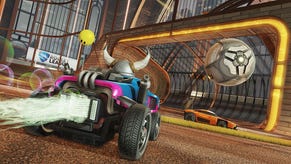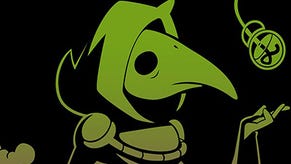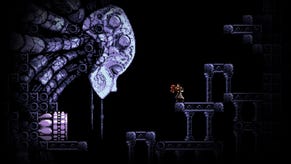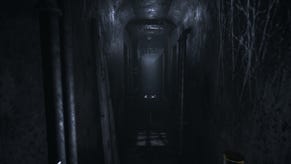Odallus: The Dark Call Strives for Authenticity with its Mix of Wonder Boy and Castlevania
JoyMasher's gothic tribute to 8-bit action is faithful on all fronts... Including difficulty.
This article first appeared on USgamer, a partner publication of VG247. Some content, such as this article, has been migrated to VG247 for posterity after USgamer's closure - but it has not been edited or further vetted by the VG247 team.
When I took one look at Odallus—released yesterday on Steam—my immediate reaction was, "Yes game, I will review you." But you know what they say about the best laid plans of mice and men: They get all screwed up and junk.
(Apologies, they never made me read much Robert Burns in college.)
So yeah, Odallus: The Dark Call is a tough game. And if you'd permit me to make the Dreaded Dark Souls Comparison, here goes: It actually reminds me quite a bit of Dark Souls. Like Shovel Knight, Odallus borrows a bit from From Software's RPG, though it's mostly interested in digging up a style from the past with the benefit of hindsight. But while Yacht Club's tribute to DuckTales and similar games offers a healthy challenge the player can organically adjust on the fly, Odallus is simply NES Hard from the outset. Plenty of 8-bit games earned this title due to the ineptness or lack of experience from their respective programming teams, but thankfully, Odallus presents a tough-but-fair challenge where every death can be blamed squarely on yourself.
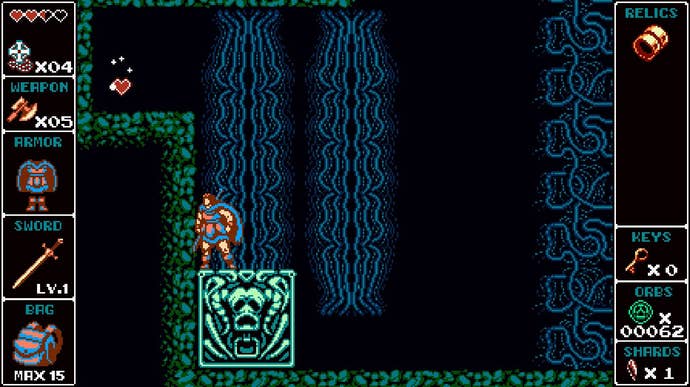
In terms of how it plays, Odallus feels like a Castlevania-themed Wonder Boy: While the weapons, items, and enemies are alarmingly similar to those from Konami's famous platformer, Odallus contains the exploration elements you'd find in Westone's long-dead series. Note that I didn't mention Metroid, because Odallus doesn't offer an interconnected world; instead, you're presented with discrete levels that offer an incentive to come back once you pick up the proper equipment to overcome certain obstacles and enemies. Yes, Odallus is another indie Metroidvania, but that's not necessarily a bad thing. Like Shovel Knight, it's slavishly devoted to presenting its world via the means of technology a half-step above the NES, giving it an authentic look that can't be achieved with a pedestrian approach to sprite art.
It's a tough game, but "tough" in terms of the modern video game experience; from the beginning, you can take quite a few hits from enemies, and bottomless pits simply shave a heart away after dropping you off right before the jump. Still, you have to approach each enemy with caution, since, as with Simon Belmont's whip, there's a real deliberate nature to protagonist Haggis' (yes) sword swings. Most levels feature multiple branching pathways—with some you'll have to explore later—along with plenty of shortcuts to open up for the sake of replays. And while the first few levels won't offer too much of a challenge, by the time level three hits, most of your time will be devoted to opening up the next shortcut so you can make it to that area's boss with all of your lives and most of your health intact later down the road. Mercifully, there's a state of persistence to the world, and while enemies may regenerate once you scroll them off the screen, the changes you've made to the levels themselves stick around, even if you leave. The inclusion of lives is a bit of a bummer—even if they make sense within the context of a retro tribute—but getting booted out of a level doesn't necessarily entail doing everything all over again.
Above all, JoyMasher has a real knack for understanding what makes 8-bit classics work so well. Odallus' bosses serve as a real master class in NES-era game design, with each one running through a series of manageable patterns that give you a small window of time to evade their attacks and get in a few hits yourself. One of my favorites so far takes the form of a massive ball with three heads growing out of it; as the fight goes on, the boss cycles through distinct attacks from each of these heads, and once you take them out, the second phase of the battle ups the stakes by introducing alternating currents of wind into the arena. Slaying this boss required more than a few tries, but it wasn't frustrating—with every replay, I had the satisfaction of getting just a little bit better.
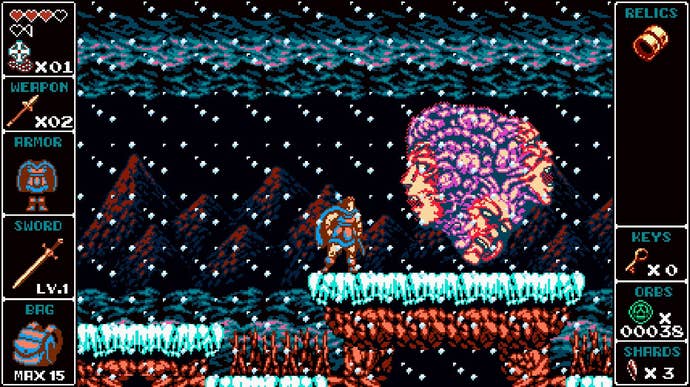
If Shovel Knight is on par with the greatest Capcom and Konami 8-bit classics, I'd say Odallus feels a lot more like the best of the NES' B-tier offerings, like Shatterhand, Kabuki Quantum Fighter, Totally Rad, and Power Blade. That doesn't necessarily make Odallus worse, though; its style of play just reminds me of different source material than Shovel Knight's. While I haven't digested enough to justify giving it an official review score, the five-or-so hours I've spent with Odallus have definitely been worth the price of entry, and I'm honestly looking forward to seeing what secrets old levels hold once I get the proper tools to break them open. The big games might be holding off until Release Season begins this fall, but with games like Odallus floating around on Steam, it shouldn't really matter.

